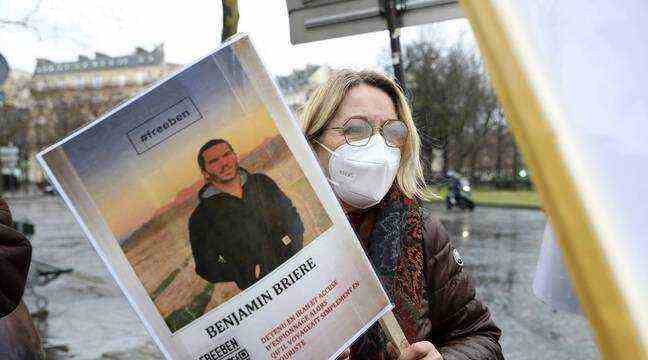For his lawyer, it is a “trial charade”. Benjamin Brière, a 36-year-old Frenchman detained for more than a year and a half in Iran, was sentenced on Tuesday to eight years in prison for “espionage” by an Iranian revolutionary court. He also receives an additional eight months in prison for “propaganda” against the Iranian regime, his lawyer, Me Philippe Valent, said in a statement.
Benjamin Brière, who has always presented himself as a tourist, was arrested in May 2020 for having taken “photographs of prohibited areas” with a recreational drone in a natural park in Iran. He is being held in Valikabad prison, in Mashhad (north-east) and has been on hunger strike since the end of December to protest against his conditions of detention. He had appeared last Thursday in court in Mashhad.
The family appeals to the French authorities
“Benjamin Brière obviously did not – and never – benefited from a form of fair trial before impartial judges. As a reminder, he did not benefit from any right to defend himself, from any access to the elements of the accusation, any possibility of preparing and presenting a defense before the judges of the revolutionary court”, added Me Valent, in s alarming about his client’s state of health.
“Benjamin Brière’s family today calls on the French authorities to take immediate action to allow his repatriation,” he added. Blandine Brière, the Frenchman’s sister, considered for her part that her brother was a “political hostage”. “It is clear that this is a useful political trial for Iran, which sends a message to the French government,” she said. “We are nothing in the face of that, we feel like pawns in a diplomatic game,” she added.
Tehran and the major powers are engaged in extremely delicate negotiations to revive the 2015 nuclear agreement, supposed to prevent Tehran from acquiring atomic weapons, and torpedoed by former US President Donald Trump in 2018. Iran is holding more than a dozen Western passport holders, mostly dual nationals, in what NGOs condemn as a hostage-taking policy designed to extract concessions from foreign powers.

